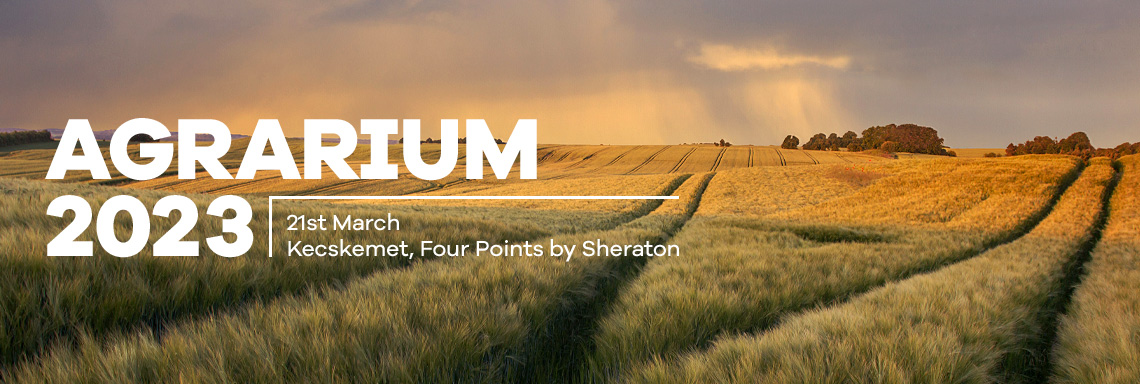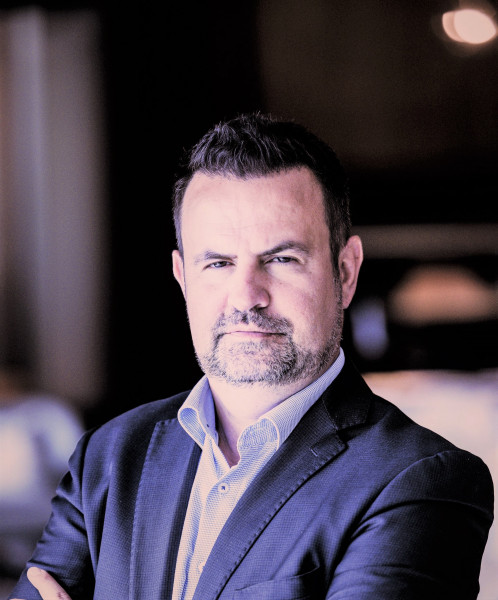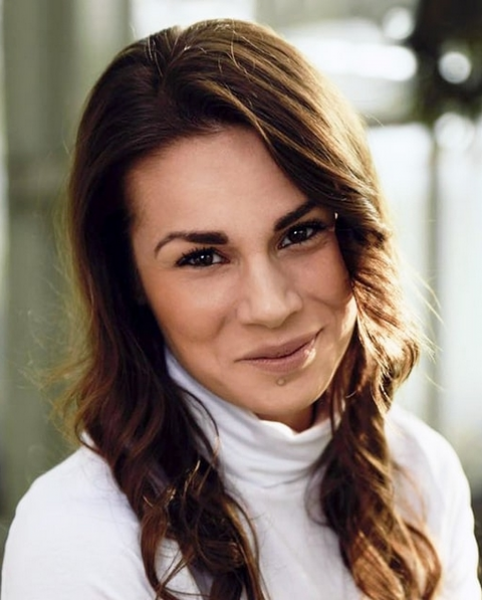



The European Union's new Common Agricultural Policy (CAP) came into force on the 1st of January, significantly changing the support positions and opportunities for domestic farmers. The session will review the changes that affect agriculture the most and present in detail what we need to be prepared for when applying for grants during this year's application period. In the roundtable discussion, we will talk about how farmers can be the winners of the new CAP support system and which risks they have to consider when using subsidies. The session will also cover how the conditions for applying for rural development support will change from 2023 and what new calls for proposals can be expected by the agricultural sector.
Which are the main practical changes in the first pillar of the new EU Common Agricultural Policy?
What new rural development tenders can we expect, how are the eligibility conditions changing, and how is it worth applying?
What changes should we prepare for in this year's agricultural subsidy application submission period?
Who can be the winners of the new CAP, and what can be done to ensure that the subsidies received so far do not decrease/increase in 2023?
08:30 - 08:35
08:35 - 08:55
The biggest challenges of agriculture in 2023 – Subsidy possibilities and government measures
Speaker: Sándor Farkas, miniszterhelyettes, Agrárminisztérium
08:55 - 09:10
Single Farm Payment applications: what to know in 2023
Speaker: Miklós Detre, Vice President, Hungarian State Treasury
09:10 - 10:00
New Common Agricultural Policy from 2023: what to pay attention to when applying for funding? – New rural development tender possibilities
Conversation participants:
How can agribusinesses protect themselves from the negative effects of drastic energy price rises, and what are the conditions for access to finance in a significantly changed macroeconomic environment? - the session will seek to answer these questions to give market players practical tips on optimising their costs and increasing their financial flexibility. In the discussion, we will talk about the price changes to be expected in the energy markets affecting agriculture as well this year and what possible solutions and alternatives exist in energy use. In addition, the session will present the support schemes available for agricultural finance, the expected macroeconomic forecasts relevant to agriculture, and changing bank lending conditions and requirements.
How can energy prices affecting agribusiness change in 2023?
From which possible solutions and alternatives can agribusinesses choose during the energy crisis?
What are the macroeconomic conditions for the agricultural sector this year?
How can the subsidised and supported public loan schemes be used, will there be further facilitations in agricultural financing?
How will banking requirements change this year in a drastically altered macroenvironment?
10:20 - 10:30
The role of renewable energy in agriculture
Speaker: Roland Lugos, Director Of Business Development, Optimum Solar Zrt.
10:30 - 11:15
Horrendous energy prices in agriculture: how can we protect ourselves from the drastic effects of the energy crisis? – Solution possibilities and alternatives for agribusinesses
Moderator: Attila Weinhardt, Analyst, Portfolio
Conversation participants:
11:15 - 11:30
A shift in trends in the food economy – New directions in production and financing in 2023
Speaker: Dávid Hollósi, Agrár- és Élelmiszeripari Üzletág ügyvezető igazgató, MBH Bank, elnök, Magyar Bankszövetség agrár munkabizottság
11:30 - 12:10
Changing macroenvironment, a new situation in agrarian financing – Subsidised loan programmes, new loan products, banking strategies in 2023
Moderator: Lajos Braunmüller, szerkesztő, Portfolio Csoport
Conversation participants:
It has become more difficult than ever to feed livestock properly, as last year's drought caused a crop shortage and considerable increases in commodity and other costs have made feed significantly more expensive. The session will focus on the price trends that livestock farmers can expect in the feed market this year and the solutions that can be found to ensure and optimise the use of feed for their livestock in the current situation. The experts of the roundtable discussion will also discuss what market changes are expected in the key livestock sectors, and how support and development investment opportunities will change this year under the terms of the new EU Common Agricultural Policy (CAP).
How will forage costs change in 2023?
What are the practical solutions to achieve competitive feeding in the current market situation?
What new products and technologies can be used in feed and animal production from this year on?
How might product prices and market opportunities in animal husbandry evolve?
What subsidies will livestock farmers be able to use in the new CAP from 2023?
What are the new tender opportunities for livestock development and investment under the Rural Development Programme?
13:10 - 13:25
Prices and trends in the feed market – Research and development directions for sustainable feeding
Speaker: Dr. Balázs Gregosits, Research and Development Director, Vitafort Zrt.
13:25 - 13:35
Is soy the crop of the future? - Stronger arguments for soya than ever before
Speaker: Zoltán Bene, cégvezető, Karintia Kft.
13:35 - 13:45
A transforming global economy – A possibility for further development
Speaker: Ákos Varga, Chairman of the board, UBM Group
13:45 - 14:30
Competitive feeding in an exceptional market environment – Price forecasts and this year's livestock subsidies
Conversation participants:
There is a high degree of uncertainty surrounding the profitability prospects of arable crop production, as weather extremes and drastic cost increases make production unpredictable, while the expected changes in the world and domestic crop prices are also affected by a number of serious circumstances, most notably the war between Russia and Ukraine. The session will look at how the costs and returns of arable crop production are likely to develop this year, what market price changes are likely to occur, and what crops are worth sowing in the spring. It will also address how farmers can mitigate the adverse effects of extreme market and weather anomalies through subsidies, irrigation development, and other means.
How will world market crop prices develop this year?
Which can be the most significant cost drivers?
Which arable crops can make a profit in 2023?
Which crop species might have the greatest production risk this year?
How can we protect ourselves against market and weather anomalies?
13:10 - 13:25
Global challenges ahead of crop production sectors: climate change, intensification, sustainability
Speaker: Sándor Keszthelyi, Professor, Hungarian University of Agriculture and Life Sciences
13:25 - 14:30
How long will the market price explosion and drastic rise in costs last? – Prospects for arable crop profitability in 2023
Conversation participants:
A new situation has emerged in the food industry after the recent period of significant cost increases and price rises, as it is still uncertain how the striking changes will affect consumption and commercial processes and, as a consequence, the profitability and competitiveness prospects of domestic companies. The session will present the market outlook for key industries this year, the most significant regulatory changes affecting companies, and possible new opportunities for food industry development and support to increase competitiveness and profitability.
How do recent market changes affect food consumption?
How are trade expectations of the food industry changing?
What will be the fate of the official food price regulation?
What further cost increases can food industry companies expect?
Is there any chance of further price increases in the domestic and foreign markets?
For what new support schemes can food businesses apply for their investments?
14:50 - 15:05
Urgent digitalisation: development opportunities in the light of the new Digital Food Strategy
Speaker: László Friedrich, university professor, institute director, Hungarian University of Agriculture and Life Sciences
15:05 - 15:20
Industry 4.0 from Delta’s aspect – Agribusiness digitalisation improvements
Speaker: András Ujhegyi, Chief Sales Officer, Delta Systems Kft.
15:20 - 16:10
Market trends, cost and price optimisation in the food industry – Development and support schemes of this year, efficiency enhancer innovations
Conversation participants:
Lately, the price of inputs used in agriculture has risen so much that drastic price changes are forcing many farmers to take often unjustified steps in their use. This is mainly true for fertilisers, but the price increase is also causing serious problems for seeds and pesticides. The session will present the processes that are most affecting input markets and this year's price developments. The experts also discuss how farmers can optimise their input use under current conditions, and the risks they run if they unreasonably reduce the quantity and/or quality of their inputs. The session will also look at the major product and technological innovations that producers can expect to see in the input market this year.
What fertiliser, seed, and pesticide prices can farmers expect in 2023?
What are the factors that will have the biggest impact on input prices this year, and what should you watch out for?
How can we optimise/reduce input costs in the context of drastic price increases?
What are the risks of undue restraint on input use?
What are input producers and distributors doing to better serve farmers?
What product and technological innovations can we see in the domestic input market this year?
14:50 - 15:05
The effects of EU regulatory changes on input markets
Speaker: Róbert Görög, Managing Director, Hungarian Crop Protection Association
15:05 - 15:55
Vital decisions in input material use – Prices, trends, and innovations in the fertiliser, seeds, and pesticide markets
Conversation participants:
Clearly, the biggest land market event of this year will be the announcement by the government of another huge land sales programme worth HUF 300 billion, according to budget revenue requirements. One of the main topics of the session will be the conditions under which remaining public land can be purchased and who can acquire it. In addition, experts will present the regulatory changes that came into force this year, which, among other things, will have a significant impact on land use and land purchase opportunities for new contracts. The regulatory changes will also have an impact on land market prices, so the section will examine what price conditions can be expected in 2023.
What land is covered by the new public land sales programme?
Who can buy public land, under what conditions, and when will the results of these purchases be announced?
What new steps have been taken against speculation in land markets?
What are the most significant regulatory changes affecting the land purchase and leasing conditions this year?
How can new land acquisition contracts be concluded from this year?
How will recent regulatory changes affect land prices in 2023?
16:10 - 16:25
Land market 2023: The most important changes in domestic land regulation
Speaker: Tamás Andréka, State Secretary, Ministry of Agriculture
16:25 - 17:20
Launch of a huge new public land sales programme – New conditions for land purchase and lease contracts
Conversation participants:
Precision farming and digitalisation are clearly the way of the future for Hungarian agriculture, but a significant proportion of farmers still find it difficult to implement/finance the necessary improvements. However, the new Common Agricultural Policy from 2023 onwards will give priority to this area so support opportunities may be expanded. In this session, we will discuss the support farmers can expect for precision and digitalisation investments, the funding and leasing constructions they can use for their automation developments, and the most significant technological innovations in 2023. One of the biggest professional events this year could be the removal of barriers to the widespread legal use of drones in agriculture. In this context, the experts outline the specific conditions that need to be met before farmers can use drones in their fields.
What support possibilities can the new Common Agricultural Policy bring in precision farming and agricultural digitisation?
What precision and digitalisation subsidies are available in 2023?
What are the biggest innovations in the agricultural machinery market this year?
What financing and leasing schemes are available for machinery purchases?
What does it mean to legalise the use of drones in agriculture?
What can we use drones for the most efficiently in agriculture?
What do you need to meet to be able to use drones in agriculture?
15:55 - 16:10
How does the Hungarian State Treasury’s regional monitoring system work?
Speaker: Levente Gulyás, Head Of Department, Hungarian State Treasury
16:10 - 16:20
Increasing farming efficiency with precision technologies: challenges in practice
Speaker: Sándor Vitéz, Head of Sales, Smart Greenhouse Control Kft.
16:20 - 16:35
Precision drone spraying platform and monitoring service
Speaker: Gyula Solymos, CEO & Chief Technology Advisor, Alpha Management Advisory
16:35 - 17:20
Subsidies and new developments in precision farming and agricultural digitalisation – Breakthrough in the use of drones in agriculture in 2023
Conversation participants:
Be our guests for a glass of champagne after the professional program and don't miss the opportunity to build relationships with the conference participants!
Main professional partner
Gold Sponsor
Silver Sponsor
Bronze Sponsor
Official car rental partner
Carbon Offsetting Partner
In association with
Main Media Partner
Media Partner
Accessibility Partner
Organisation, general questions

Sponsorship


Program
